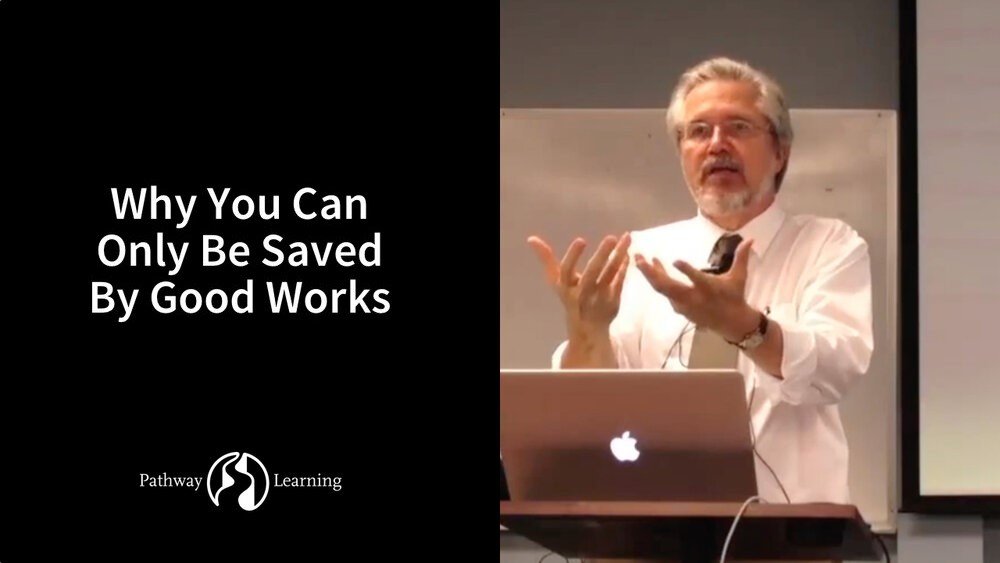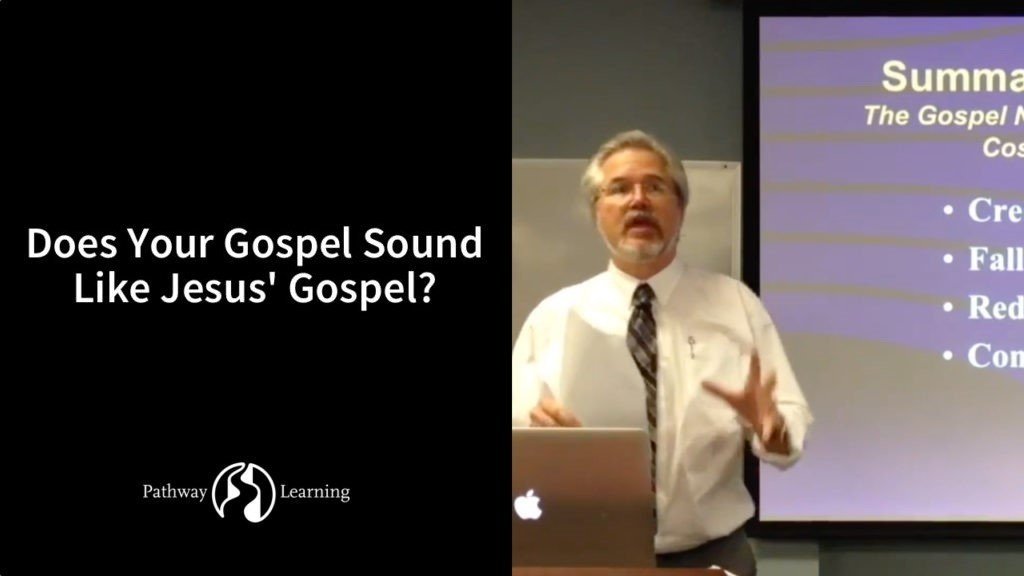
Pathway Learning Blog
Access our growing library of hundreds of blog posts covering topics relevant to church leaders. Preview and read these blog posts now.
SEARCH THE BLOG
Looking for something in particular? Search our hundreds of blog posts on topics of interest to church leaders.

Join God's Cosmic Restoration Project (Faith & Work, Part 5)
Do you know God’s mission will continue through you forever? Understand why God’s mission for us to rule with him establishing his kingdom on earth was never abandoned or revoked.

Called to Rule Now & Forever (Faith & Work, Part 4)
Before you were ever born, God prepared your good works to be a part of his plan for the world. Understand how God calls you to bear his image by reflecting his dominion over all your spheres of influence in the temple of God’s world.

Designed for Influence (Faith & Work, Part 3)
The question is not whether we are shaping the spheres of influence God give us, but how. Understand how God calls you to accomplish his will by making a difference in your spheres of influence, including your work.

Reimaging Your Work as Worship (Faith & Work, Part 2)
The problem is that people normally separate worship and work in a way that God doesn’t. Understand how one of the most significant ways God means for you to worship him is by serving him in and through your work.

Why Your Work Matters to God (Faith & Work, Part 1)
All human work is not just a job but a calling from God. Understand how work is God’s gift to us that needs to be redeemed and restored to its original purpose in our lives by Jesus Christ.

What Must I Do To Be Saved? (Evangelism, Part 5)
Jesus, as our Prophet, Priest and King, can make promises of a new record, a new heart, and a new world. And each of those promises contains many other rich promises.
This raises the questions, “How can I appropriate these promises in my life? What is the means by which these promises become a reality in my life? How can I receive God’s forgiveness, a new status, a new heart, and a new world to come?”

Why Believers Won't Be In Heaven Forever (Evangelism, Part 4C)
The resurrection is the Father's amen that the work of the Son is fully acceptable to him. And so, the good news is that he is risen. It's time to celebrate, Satan and death have been conquered.
But like so many things we've seen, the gospel is actually more than that. The resurrection has a much more full meaning than simply, the Father's amen or the validation of the work of the Son.

Why Did Jesus Have To Die? (Evangelism, Part 4B)
When John Stott was asked, “What is the most succinct summary of the Gospel? He said it's the good news of “God's self-satisfaction, through God’s self-substitution.”
The dilemma, the profoundest of problems, was solved. You know how it was solved? God satisfied his own justice by substituting himself. That is the mystery of the gospel.

God’s Conditional Love (Evangelism, Part 4A)
As a seminary professor, I would often tell the students that if I preach in their future churches they should know ahead of time what my sermon title will be. It will be
“God's Conditional Love” with a subtitle “How we can only be saved by good works.”

The Way Up is the Way Down: Evangelism (Part 3C)
The degree to which you understand the nature of the fall will be the degree to which you understand the fullness of the nature of the Gospel as well.
What I want to do is talk to you about the threefold ramifications of the fall. This is a biblical theology of the impact of the fall on humanity and on creation.

Why Can't God Just Forgive Like I Forgive? (Evangelism, Part 3B)
Forgiveness to men is the plainest of duties. To God it is the profoundest of problems. You see, there is a duality in God's attributes. God's holy justice is a just judge who must punish sin. God's holy love is a gracious Father who loves to show mercy.

Does Your Gospel Sound Like Jesus’ Gospel? (Evangelism, Part 3A)
When you ask a lot of people “What is the gospel?” they will often respond to you with a 1 Corinthians 15:3 and 4 kind of answer.
My encouragement to you is to see that kind of answer as true but incomplete. This means the gospel is more than simply the gospel events. It's more than simply Christ’s birth, life, death, resurrection, ascension, and promised return.

Why You Cannot Commend God (Evangelism, Part 2C)
The task before us in evangelism is not merely to raise up converts. At its core it is to align ourselves with the ancient message of the Scriptures, calling people to turn from their idols in repentance and place their affections by faith in the one and true only God who makes himself known in Christ.
We're actually not evangelizing merely to raise up converts but to raise up worshipers.

Obedience to God’s Command and Compassion for the Lost (Evangelism, Parts 2A and 2B)
I haven't reached this state of spiritual maturity we find in the Apostle Paul when he writes: "I speak the truth in Christ. I am not lying. My conscience confirms it in the Holy Spirit." Paul writes, "I have great sorrow and," Another translation reads, "I have unceasing anguish in my heart.” Paul goes on: “For I could wish that I myself were cursed.”

Is Praying A Sinner's Prayer Enough? (Evangelism, Part 1)
The goal of evangelism should be someone making a credible profession of faith in Christ. But who says the profession of faith in Christ is credible? Is it the person themselves? Is it enough for them just to say they made a commitment, a decision or to say, “I prayed a prayer?”

Foundations of Discipleship (Discipleship Series, Part 1)
When the resurrected Jesus met with his eleven disciples on a mountain in Galilee, he commanded them to “make disciples of all nations” (Matt 28:19). Jesus’ commission to make disciples is clear. But what it really means to make disciples is often unclear.To make disciples, we must first know what a disciple is.The eleven followers of Jesus who heard this command to make disciples are referred to as “his eleven disciples.” And they were called disciples before they were called Christians (Acts 11:25).

Master's Method Of Discipleship (Discipleship Series, Part 2)
The primary focus of Jesus' brief life and ministry was not on preaching, teaching or healing people, but on making disciples. So we shouldn’t be surprised to learn that at the end of his ministry, after his resurrection and before his ascension, he commissioned his own disciples to make new disciples (Matt 28:16-20).

Principles of Discipleship (Discipleship Series, Part 3)
One of the dangers in discipleship ministry is an inordinate focus on methods. The focus of most discipleship curriculum is on methods, strategies, and techniques for making disciples. The problem is that methods are not universal and methods that work well in one situation, often do not work in others. We need to understand essential principles regarding discipleship that are rooted in the Bible and universal in application. Principles represent an objective reality that transcends cultural contexts.

What is a Mature Disciple? (Discipleship Series, Part 4)
What does a mature disciple of Jesus Christ look like?
First and foremost a mature disciple is someone who is marked by love. We saw earlier that Jesus’ commission to make disciples culminates in his command to teach his followers how to obey all his commandments. When someone asked Jesus which of the commandments is the most important, he responded by teaching it is love for God and others. (Matt 22:34-40)

The Master Plan: Imitating Christ in Discipleship (Discipleship Series, Part 5)
We know what it means to imitate Christ in terms of moral virtues – who we are. But what does it mean to imitate him in how we do practical ministry?
The problem is that church leaders often focus more on leading ministry programs than on imitating Jesus’ example of discipling people. Jesus’ example of making disciples is worthy of our serious thought and imitation. Begin learning how.
